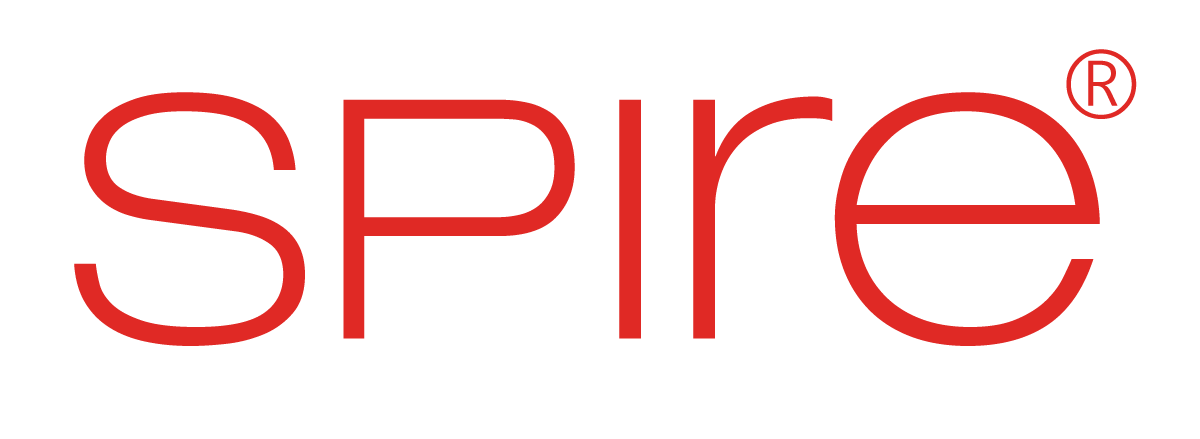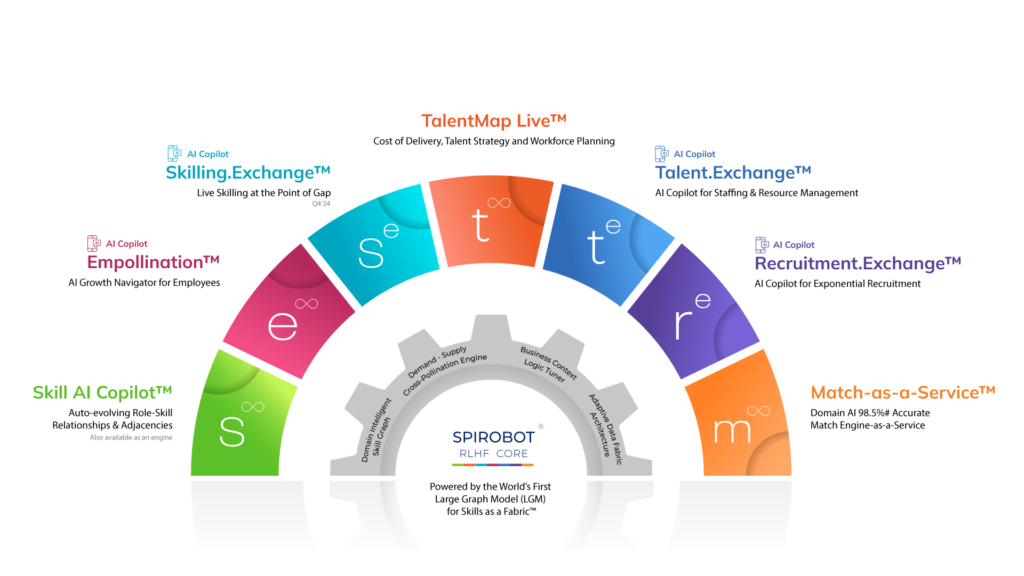Organizations today are grappling with a skills gap, a fiercely competitive hiring environment, and a growing need to prioritize employee engagement. In response, many have turned to artificial intelligence (AI) for help. However, traditional AI technologies often fall short, frustrating HR teams and raising questions about the value proposition. This blog explores the key talent management challenges associated with generic AI solutions and how specialized platforms, like Spire.AI, can address these issues.
Why Generic AI Fails in Talent Management
Generic AI, while powerful in its own right, often falls short of expectations when applied to the complex and nuanced world of talent management. Several key factors contribute to this shortfall:
Lack of Domain-Specific Knowledge
- Shallow Understanding of Talent Dynamics: Generic AI models lack a deep understanding of the intricacies involved in talent acquisition, development, and management. They struggle to grasp the subtle nuances of job roles, candidate qualifications, and organizational culture.
- Inaccurate Candidate Assessments: AI systems may misinterpret candidate resumes and cover letters without domain-specific knowledge, leading to inaccurate assessments and missed opportunities to identify top talent.
- Ineffective Skill Matching: Generic AI models often struggle to accurately match candidates to job requirements, leading to poor quality hires and increased turnover rates.
Data Quality and Integration Challenges
- Data Silos and Inconsistency: Talent management involves a vast array of data sources, including applicant tracking systems, performance management tools, and employee surveys. Generic AI systems often struggle to integrate and reconcile data from these disparate sources, leading to incomplete and inaccurate insights.
- Data Bias: If the data used to train the AI model is biased, the model will perpetuate those biases, leading to unfair and discriminatory outcomes. Generic AI models are more susceptible to this issue because they rely on broader datasets.
- Lack of Real-Time Insights: Many generic AI solutions struggle to process and analyze data in real time, preventing HR teams from making timely decisions.
Limited Understanding of Human Factors
- Ignoring Soft Skills: While generic AI can analyze hard skills and experience, it often overlooks the importance of soft skills such as communication, teamwork, and leadership. These skills are crucial for job success but are difficult to quantify and measure using traditional AI methods.
- Failure to Account for Employee Experience: A successful talent management strategy requires a deep understanding of the employee experience. Generic AI models often fail to consider factors such as employee engagement, job satisfaction, and organizational culture, which are essential for driving retention and performance.
- Lack of Personalization: Generic AI solutions often provide one-size-fits-all recommendations, failing to account for individual differences and preferences. This can lead to decreased employee satisfaction and lower engagement.
Overreliance on Historical Data
- Limited Predictive Power: Generic AI models primarily rely on historical data to predict future trends. However, the talent landscape constantly evolves, and historical data may not accurately reflect current or future conditions.
- Inability to Adapt to Change: Generic AI models may struggle to adapt to rapid changes in the job market, industry trends, or organizational priorities.
Choosing the Right AI Partner: Key Questions for Specialized Vendors
Selecting the right AI partner is critical for the success of your talent management initiatives. To ensure you’re making an informed decision, it’s essential to ask potential vendors the following questions:
Domain Expertise and Customization
Questions to ask
1. How deep is your understanding of specific talent management challenges, such as recruiting, onboarding, performance management, and employee development?
2. Can your solution be tailored to our unique organizational culture, industry, and talent needs? How flexible is the platform in terms of configuration and customization?
3. Can you provide examples of how your solution has been successfully implemented in organizations similar to ours?
- Depth of Talent Management Expertise: This question assesses the vendor’s specific knowledge and experience in the talent management domain. A deep understanding of recruiting, onboarding, performance management, and employee development indicates a strong foundation for addressing your organization’s unique challenges.
- Customization Capabilities: It is crucial to tailor the solution to your organizational culture, industry, and talent needs. Flexibility in configuration and customization ensures that the AI system aligns with your business objectives.
- Industry Benchmarks: Understanding the vendor’s track record with similar organizations provides valuable insights into their solution’s effectiveness and adaptability to different industries and company sizes.
Data Integration and Privacy
Questions to ask
1. How seamlessly does your solution integrate with our existing HR systems, applicant tracking systems, and other relevant data sources?
2. What measures do you have in place to protect sensitive employee data? Can you assure compliance with relevant data privacy regulations?
3. How do you ensure the accuracy and completeness of the data used to train your AI models? What steps do you take to address data biases?
- Data Integration Capabilities: Seamless integration with your existing HR systems, applicant tracking systems, and other data sources is essential for accurate and comprehensive analysis. A strong integration capability ensures data consistency and reduces manual effort.
- Data Security and Privacy: Protecting sensitive employee data is paramount. The vendor should demonstrate a robust commitment to data security and compliance with relevant regulations.
- Data Quality and Validation: Accurate and unbiased data is crucial for effective AI models. The vendor’s data quality and validation approach ensures reliable insights and decision-making.
AI Model Transparency and Explainability
Questions to ask
1. Can you explain how your AI models work and the factors that influence their decision-making?
2. What steps do you take to identify and address potential biases in your AI models?
3. Can your solution provide clear and understandable explanations for AI-generated recommendations or decisions?
- Model Transparency: Understanding how the AI models work and the factors influencing their decisions is essential for trust and accountability. Transparency builds confidence in the AI system.
- Bias Mitigation: Addressing potential biases in AI models is crucial for fair and equitable outcomes. The vendor’s approach to bias mitigation demonstrates their commitment to ethical AI practices.
- Explainable AI: The ability to provide clear and understandable explanations for AI-generated recommendations enhances trust and adoption. Explainable AI empowers users to make informed decisions.
User Experience and Adoption
Questions to ask
1. How user-friendly is your platform? Have you conducted usability testing to ensure a positive user experience?
2. What resources and support do you offer to help organizations implement your solution and drive user adoption?
3. What training and support options are available to both HR professionals and end-users?
- User-Centric Design: A user-friendly platform improves adoption and satisfaction. The vendor’s focus on user experience indicates their commitment to creating a tool that is easy to use and navigate.
- Change Management Support: Effective change management is essential for successful AI implementation. The vendor’s support in driving user adoption ensures a smooth transition and maximizes the solution’s benefits.
- Training and Support: Comprehensive training and ongoing support are crucial for maximizing the value of the AI solution. The vendor’s commitment to training and support ensures users can effectively leverage the tool.
Measurable Outcomes and ROI
Questions to ask
1. What KPIs do you use to measure the success of your solution? Can you share examples of how you’ve helped clients achieve their talent management goals?
2. How can you demonstrate the return on investment of your solution? Can you provide data on cost savings, increased efficiency, or improved talent outcomes?
3. How do you ensure that your solution stays up-to-date with the latest industry trends and technologies?
- Key Performance Indicators (KPIs): Clear and relevant KPIs help measure the success of the AI solution. The vendor’s ability to track and report on key metrics demonstrates their focus on delivering value.
- ROI Assessment: Demonstrating the return on investment (ROI) is essential for justifying the AI investment. The vendor’s ability to quantify the solution’s benefits in terms of cost savings, efficiency gains, and improved talent outcomes is crucial.
- Continuous Improvement: A commitment to ongoing improvement ensures the AI solution stays relevant and effective. The vendor’s approach to innovation and adaptation to changing industry trends demonstrates their dedication to delivering long-term value.
By asking these questions, you can gain valuable insights into a vendor’s capabilities and determine if their solution fits your organization.
Spire.AI: A Solution Built for Talent Management Success
Spire.AI is an innovative AI solution designed to address the common pitfalls associated with traditional AI tools in talent management. Unlike generic AI platforms, Spire.AI offers a holistic approach, focusing on the following key areas:
- Domain-Specific Intelligence: Spire.AI’s models are built with a deep understanding of talent acquisition and management best practices. This ensures the platform provides HR professionals with relevant and actionable insights that can be directly applied to talent acquisition and development strategies.
- Seamless Integration: The Spire.AI platform is designed to integrate effortlessly with existing ATS and HRIS systems. This eliminates data silos, streamlines workflows, and allows for efficient data analysis.
- User-Centric Design: User adoption is a top priority for Spire.AI. The platform boasts an intuitive interface and comprehensive support services, enabling HR teams to quickly learn and leverage the full potential of the AI solution.
- Ethical AI Practices: Spire.AI is committed to fairness and transparency in its AI models. The company employs rigorous measures to identify and mitigate potential biases throughout the development and application of its AI technology.
- Proven Outcomes: With Spire AI, organizations can expect tangible improvements in their talent management processes. The platform delivers measurable results, from reducing hiring time to enhancing employee engagement.
Conclusion
In conclusion, the era of generic AI in talent management is drawing to a close. Organizations are increasingly recognizing the limitations of these solutions and the critical need for specialized AI tools tailored to the talent landscape’s unique challenges. By understanding the shortcomings of traditional AI, asking the right questions when selecting a vendor, and prioritizing domain expertise, data integration, AI transparency, user experience, and measurable outcomes, organizations can harness the true potential of AI to drive talent acquisition, development, and retention.
Investing in a specialized AI solution like Spire.AI can be a game-changer, empowering HR teams to make data-driven decisions, optimize talent processes, and ultimately achieve organizational goals. As the talent market evolves, organizations that embrace Domain AI-powered talent management strategies will gain a competitive edge and build high-performing teams.
By carefully evaluating their options and selecting the right AI partner, organizations can embark on a journey of talent transformation and unlock the full potential of their human capital.
Frequently Asked Questions
How can AI be used in talent management?
AI can be used in talent management for tasks like candidate sourcing, employee performance evaluation, learning and development, career pathing, and succession planning.
How is AI used in talent retention?
AI can be used to identify employees at risk of leaving by analyzing factors such as performance, engagement, and skills gaps. AI can also be used to personalize retention efforts, such as recommending development opportunities or providing targeted recognition.






